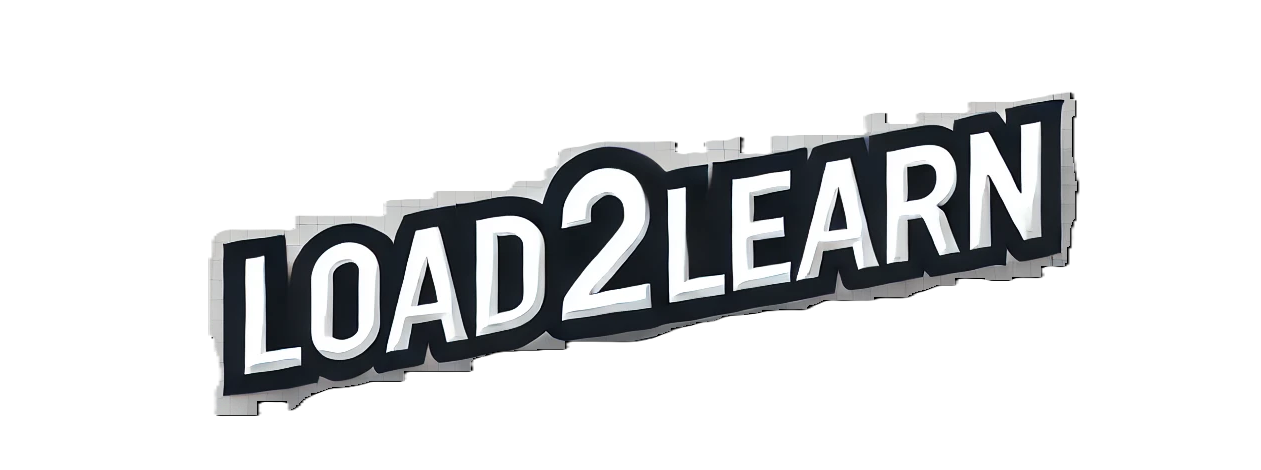Starting a new job is an exciting yet often nerve-wracking experience, blending anticipation with anxiety. Even seasoned professionals may feel unsettled in a new role due to the challenges of unfamiliar responsibilities, adapting to new teams, and adjusting to different workplace cultures. These factors can contribute to feelings of uncertainty and self-doubt about meeting expectations.
Understanding the common causes of job-related nervousness can help individuals approach their new roles with greater confidence and realistic expectations. Recognizing that such emotions are a normal part of the transition process enables new hires to better navigate this pivotal career moment and reduce stress.
This guide explores the key reasons behind job-related anxiety and provides practical insights into managing the transition. By offering strategies to build confidence and adapt effectively, it aims to help new employees thrive in their roles and minimize the stress associated with starting a new job.
Fear of the Unknown
The fear of the unknown is a significant factor behind the nervousness many experience when starting a new job. Entering an unfamiliar work environment often provokes uncertainty, as new employees face the challenge of understanding the company’s culture, expectations, and dynamics. This unfamiliarity can lead to anxiety about fitting in, performing well, and adjusting to new routines, adding pressure during the initial transition phase.
Each workplace comes with its own set of unwritten rules and nuances, which can be intimidating for newcomers to navigate. Adapting to varying management styles may also contribute to stress, as employees work to align their habits with the expectations of new supervisors. Furthermore, the process of building relationships with colleagues and deciphering office politics can create additional hurdles, further complicating the adjustment period.
Given these challenges, it’s crucial for new hires to develop strategies to manage their nerves and approach their roles with confidence. Preparation is key, and one effective way to minimize stress is by presenting a strong, tailored CV that showcases your capabilities and helps you start on a positive note. A professional CV writing service can be invaluable in crafting a CV that highlights your strengths and aligns with the expectations of prospective employers, providing an edge as you embark on your new career journey.
Pressure to Make a Positive First Impression
The pressure to make a strong first impression is a common source of anxiety for new employees. From their first day in the workplace, there’s an inherent drive to demonstrate competence and establish themselves as valuable members of the team. This desire can quickly lead to self-doubt, as newcomers worry about being prematurely judged by their managers and colleagues.
Balancing the need to impress while building rapport with team members often presents a delicate challenge. New hires aim to highlight their professional strengths, but they also strive to avoid coming across as either overconfident or overly reserved. Navigating these social dynamics can feel daunting, as the fear of making a misstep and creating negative perceptions looms large.
This anxiety is further intensified by the lasting impact of first impressions, which can shape workplace relationships and reputations long after initial interactions. Recognizing this pressure is a crucial step in helping new employees manage their expectations. By understanding that perfection isn’t required from day one, they can adopt a healthier mindset and focus on making authentic connections while gradually showcasing their abilities.
Fear of Not Meeting Expectations
The fear of failing to meet expectations is a significant contributor to nervousness, especially when stepping into a new role or taking on greater responsibilities. Many individuals experience intense pressure to not only meet but exceed expectations, often resulting in self-imposed stress and heightened anxiety. This feeling can be particularly pronounced for those entering more senior positions, where the perceived stakes are higher and the margin for error feels smaller.
A lack of clarity about what is expected or how success is measured within the new role can amplify these fears. Uncertainty about whether one’s efforts will align with managerial or team expectations can lead to doubts about one’s capabilities, further compounding the stress. This mental burden can make it difficult for employees to focus on delivering results and performing confidently in their new responsibilities.
To mitigate these anxieties, it’s crucial for new employees to seek clarification on performance standards and success metrics early on. Open communication with managers or team leaders can provide the guidance needed to establish a clear understanding of expectations. By addressing uncertainties and fostering dialogue, employees can gain the confidence and focus required to navigate their new roles effectively and build a foundation for success.
Challenges of a New Workplace Culture
Adapting to a new workplace culture is often a significant source of nervousness for new employees. Every organization has its own unique set of unspoken rules, values, and communication styles that shape how employees interact and collaborate. For new hires, learning and aligning with these cultural norms can be challenging, especially when they differ significantly from those of previous workplaces.
Understanding what constitutes appropriate behavior in communication and collaboration is key but can feel daunting. For instance, some companies may value direct and open communication, while others might favor a more formal or hierarchical approach. New employees may fear misinterpreting these cues or inadvertently offending colleagues, which adds to their anxiety during the transition.
Adapting to different work styles—whether highly collaborative, independent, or a mix of both—can further complicate the process of integration. To ease this adjustment, observing colleagues, asking thoughtful questions, and seeking constructive feedback can be invaluable. By actively engaging with their new environment, employees can gradually align with workplace expectations and integrate more confidently into their new teams.
Concerns About Office Politics
Concerns about office politics can significantly heighten anxiety when starting a new job. Many professionals worry about navigating workplace dynamics, fearing they might misinterpret relationships or motives. The pressure to avoid saying the wrong thing or inadvertently offending someone adds to the stress.
Understanding the hierarchical structure and identifying key stakeholders is a critical but challenging task. New hires often feel compelled to align with influential figures while simultaneously building genuine connections with peers, requiring careful observation and tact, especially early on.
Being mindful of unspoken rules around communication and collaboration can further complicate this balance. To ease these concerns, new employees can prioritize authentic relationships, seek mentorship, and take time to observe the workplace culture, enabling them to navigate office politics more confidently.
Learning New Work Processes and Tools
Adapting to unfamiliar work processes, systems, or software is a common source of stress for new employees, particularly if they feel unprepared or lack sufficient training. This challenge is especially daunting in roles requiring specialized tools or unique methods unfamiliar from prior experience.
The pressure to quickly learn and apply new skills in a fast-paced environment can amplify anxiety. Employees may fear falling short in their performance, leading to feelings of inadequacy or self-doubt. Expecting immediate proficiency only heightens these concerns, making the transition even more stressful.
Recognizing that learning curves are natural is crucial for easing this adjustment. Employers can support new hires by offering thorough training, encouraging questions, and providing time to adapt. Understanding that everyone learns at their own pace can further alleviate pressure and help employees build confidence in their new roles.
Balancing New Responsibilities with Personal Life
Starting a new job often brings heightened demands that can significantly impact work-life balance. Onboarding, training, and networking require extra time and energy, leaving new employees anxious about meeting expectations while managing personal responsibilities.
Juggling these competing priorities may require adjusting daily routines and managing expectations with family or friends, which can feel overwhelming. The pressure to excel in a new role often leads to dedicating more time to work, further straining personal commitments.
To navigate this transition, creating a structured routine that balances work and personal life is essential. Prioritizing tasks, setting boundaries, and communicating openly with loved ones can help new employees manage their responsibilities and maintain equilibrium during this demanding period.
Facing Imposter Syndrome in a New Role
Imposter syndrome is a common source of nervousness for many individuals starting a new job, particularly for high-achieving professionals or those taking on senior roles.
Despite their competence and accomplishments, those with imposter syndrome often struggle to internalize their success. As they face new responsibilities or adapt to different skill sets, these feelings of inadequacy can intensify, making the transition even more challenging. The pressure to perform flawlessly can exacerbate anxiety about making mistakes or failing to meet expectations.
Recognizing these feelings as common is an important step toward overcoming imposter syndrome. Seeking support from colleagues, mentors, or professional resources can provide reassurance and perspective. Open discussions about these experiences can help normalize the struggle, fostering a more supportive and understanding workplace environment.
Tips to Ease New Job Nerves
Starting a new job can feel overwhelming, but several strategies can help manage anxiety and build confidence. Begin by setting realistic goals for your first few weeks to establish direction and achieve small wins. Breaking larger tasks into manageable steps can make challenges feel less daunting.
Seeking clarification on expectations from your manager or team is also key. Understanding what is required helps reduce uncertainty and allows you to focus on priorities. Establishing a structured routine can further aid in adapting to new responsibilities, creating a sense of stability during the transition.
Practice self-compassion and remind yourself that learning takes time—it’s okay to make mistakes. Building connections with colleagues can also ease feelings of isolation and create a supportive network. Lastly, prioritize self-care outside of work to recharge, maintain a healthy work-life balance, and approach your new role with a positive and focused mindset.
Conclusion
Starting a new job often brings natural feelings of nervousness, driven by fear of the unknown, pressure to impress, and adapting to a new culture. By understanding these anxieties and focusing on gradual adaptation rather than perfection, individuals can build confidence and create a solid foundation for a successful transition.
















Leave a Reply